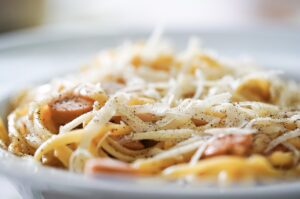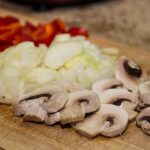When a Crohn’s or colitis flare hits, eating can feel like a battle. Pain, urgency, nausea, and fatigue make food the last thing on your mind—but your body still needs nourishment. The key is to eat in a way that soothes your digestive system rather than aggravating it. Let’s break down the best strategies for eating during an IBD flare so you can get through it with as much comfort as possible.
Stick to Gentle, Low-Fiber Foods
During a flare, high-fiber foods can be too rough on the gut, so focus on low-fiber, easily digestible options. White rice, plain pasta, mashed potatoes, and soft-cooked vegetables like carrots or zucchini are good staples. Lean proteins, such as skinless poultry, eggs, and tofu, can help provide necessary nutrients without excessive strain on digestion.
Cook Foods Until They’re Soft
Raw foods can be hard to digest, so cooking everything thoroughly can help. Steamed, baked, or boiled options are much easier on an inflamed gut. Peeling fruits and vegetables and removing seeds further reduces irritation. If solid food is difficult to tolerate, try blending soups or making purees to make digestion even easier.
Stay Hydrated Without Irritation
Flare-ups often lead to dehydration, especially if diarrhea is a symptom. Sip on water, herbal teas, or electrolyte drinks to stay hydrated. Bone broth is an excellent option because it provides both fluids and essential nutrients. Avoid carbonated drinks, alcohol, and caffeine, as they can worsen symptoms.
Go Easy on Dairy and Fat
Many people with IBD experience lactose intolerance, especially during a flare. Try lactose-free dairy products or plant-based alternatives like almond or oat milk. High-fat foods, including fried or greasy meals, can also be hard on the gut, so stick to leaner, simpler options like baked chicken or smooth nut butters (if tolerated).
Eat Small, Frequent Meals
Instead of overwhelming your digestive system with large meals, eat smaller portions throughout the day. Frequent, light meals help keep energy levels up without putting too much stress on your gut. Think of foods like plain scrambled eggs, soft white toast, or a banana—simple, nourishing, and easy to digest.
Listen to Your Body
IBD affects everyone differently, so what works for one person may not work for another. Keep a food journal during flares to track which foods are well-tolerated and which cause discomfort. This can help guide your choices in future flare-ups.
The Bottom Line
Eating during a flare is all about minimizing irritation while maintaining nourishment. Stick to soft, low-fiber, and well-cooked foods, hydrate often, and listen to your body’s needs. With the right approach, you can get through flares with as much comfort as possible while still giving your body the support it needs to heal.








